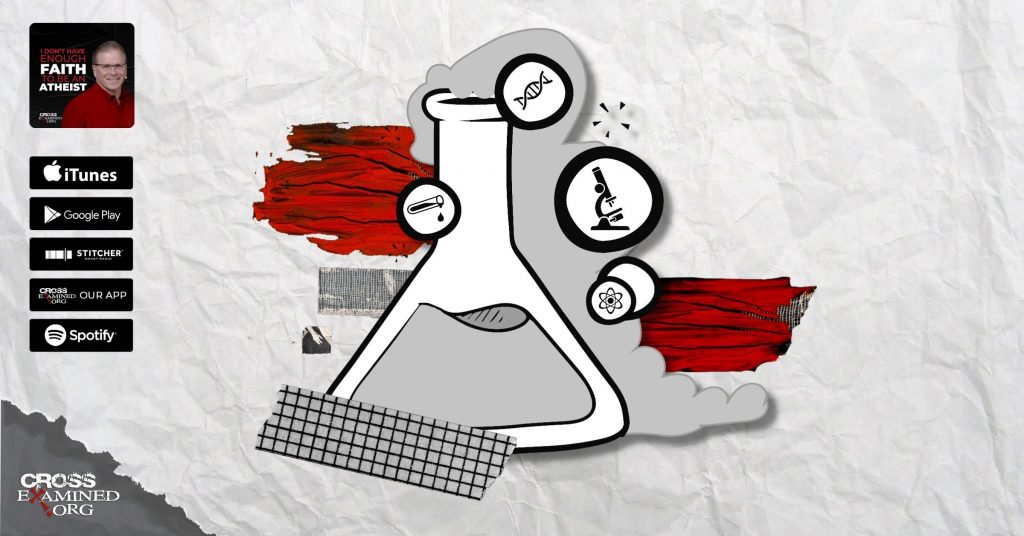Are There Prophets In The Church Today?
Turn on your T.V., and you are bound to come across a religious show with someone declaring they speak for God. Go to your local bookstore, and there I’m sure you will find several books written by people who say they have received divine revelations from God. Jump on YouTube, and you will definitely see videos of preachers proclaiming, “Thus saith the Lord.”
This barrage of “prophetic words” from thousands of voices has undoubtedly caused many Christians to become confused. In one camp, you have Christians who get caught up in the sensationalism of prophetic words espoused by the Word of Faith movement. In another camp, you have Christians who doubt prophecy altogether because they lack the faith to understand its intended purpose in the body of Christ. While still, some don’t know what to believe.
Therefore, let’s turn to the Bible to see what it has to say about prophets.
The first thing we notice from Paul is that there are prophets in the church today. Recorded in Ephesians 4:11-13, Paul mentions the prophet’s office in the church. And not only that, but Paul also describes the gift of prophecy in 1 Corinthians 12:10. As a matter of fact, the gift of prophecy is mentioned more than any of the other spiritual gifts. You can find it in these passages: Romans 12:6, 1 Corinthians 12:27-29; 13:1-3, 8; 14:6, and in Ephesians 4:11.
That said, it’s vital to understand that the prophet’s office in modern times is not the same as Old Testament prophets. Before Jesus came to earth, God raised up prophets (Hebrew, nabi, “to utter”) or seers (spokesmen) as national leaders who spoke with specificity and with 100% accuracy in their prophecies (Deut. 18:20-22; Jer. 23:28, 31-33). But after the ascension of Christ to heaven and the completion of the written Word, God utilizes his modern prophets in different ways than he did with Samuel, Daniel, and Isaiah. The writer of Hebrews clears this up when he opened his letter with these words: “Long ago, at many times and in many ways, God spoke to our fathers by the prophets, but in these last days he has spoken to us by his Son, whom he appointed the heir of all things, through whom also he created the world” (1:1-2).
Furthermore, according to 1 Corinthians 14:3-4, a prophet’s primary role now is to edify, comfort, and uplift the church. However, that does not mean predictive prophecy is not exercised among some prophets of God. Like Agabus (in Acts 11:27-28), there are times when a prophet will give a prophetic word from God about the future. That is why we are not to neglect prophecy in the church (1 Thessalonians 5:19-21). But again, the primary purpose of the gift of prophecy in the church age is to encourage and exhort one another (1 Cor. 14:31). Prophets are not called by God to generate visions that others in the church cannot judge (1 Corinthians 14:29).
Therefore, we are not to look to prophets for new revelation but for exhortation according to Scripture’s illumination.
In closing, here are six indicators to help you distinguish between a true prophet and a false prophet.
- A true prophet’s word will come to pass. A false prophet’s predictive word will not come to pass (Deut. 18; Jer. 23).
- A true prophet never gives a word that contradicts the Bible. A false prophet will twist Scripture to validate a dream or vision they had. For example, false prophets will take prophecies explicitly intended for Israel and apply them to the United States—directly contradicting God’s promises in the Bible.
- A true prophet does not brag or is greedy for gain. A false prophet brags about receiving a “prophetic word” or vision from God as if they are divinely anointed and exploits the church for financial gain.
- A true prophet’s ministry aligns with what the Bible teaches. A false prophet talks more about their heavenly visions and “prophetic words” than they teach contextually from the Holy Bible. Lamentations 2:14, “Your prophets have seen for you false and deceptive visions; they have not exposed your iniquity to restore your fortunes, but have seen for you oracles that are false and misleading.”
- A true prophet edifies the church and points people to Jesus Christ. A false prophet doesn’t call people to repentance but shares messages that appeal to their wants and desires. 2 Timothy 4:3-4, “For the time is coming when people will not endure sound teaching, but having itching ears they will accumulate for themselves teachers to suit their own passions, and will turn away from listening to the truth and wander off into myths.”
- A true prophet’s defense comes from the Holy Spirit. A false prophet continually tells people they are not a false prophet.
Recommended resources related to the topic:
How to Interpret Your Bible by Dr. Frank Turek DVD Complete Series, INSTRUCTOR Study Guide, and STUDENT Study Guide
Can We Understand the Bible? by Thomas Howe Mp3 and CD don’t promote
How Philosophy Can Help Your Theology by Richard Howe (MP3 Set), (mp4 Download Set), and (DVD Set)
__________________________________________________________________________________________________________________________________________________
Jason Jimenez is president of Stand Strong Ministries (www.standstrongministries.org), a faculty member at Summit Ministries, and a best-selling author who specializes in apologetics and biblical worldview training. Connect with him on Facebook, Twitter, and YouTube.
Original Blog Source: https://cutt.ly/YcZ8J25











